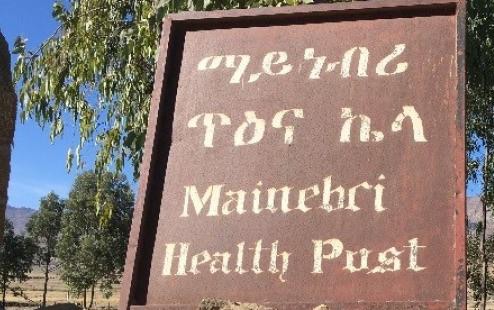In countries like Ethiopia, sudden illnesses have a high risk of translating into serious economic hardship. With limited access to formal credit or insurance markets, unexpected health problems or injuries force poor households to sell their assets or to cut back on their consumption to cover the out-of-pocket health expenditures. In the worst cases, illnesses are not cured and become chronic, destabilizing the earning capacity of the household.
Ethiopia’s Community Based Health Insurance (CBHI) aims to address this. Launched in 2011 with a pilot in 13 districts, CBHI has now rolled out in 191 rural districts and is seen as a stepping stone toward universal health insurance—a target that the Ethiopian government has set for itself to achieve by 2035. Maintaining a strong social protection dimension, the insurance fees are waived for the poorest households.
In parallel, the government of Ethiopia is implementing the Productive Safety Net Program (PSNP) in more than 300 rural districts. Through a combination of food or cash transfers and public works, PSNP aims to improve food security and resilience in chronically food insecure areas of the country. Currently, nearly 8 million people benefit from the program, making it one of the largest safety net programs in Africa.
The CBHI and PSNP share the same objective of protecting poor and vulnerable households, as well as a geographical overlap: In 2016 CBHI operated in about one third of PSNP districts. But how do these two social protection programs complement each other? IFPRI and UNICEF formed a collaborative research project to investigate.
Using rich household survey data from the areas covered by the PSNP, the research team found that though PSNP has had a positive impact on improving household food security and preventing asset depletion, many PSNP households remain vulnerable to sudden illnesses. Several PSNP households reported unexpected illnesses leading to cuts in their consumption, losses of their assets, or both. This is particularly worrying, considering PNSP’s core objective of improving food security. Health insurance would help, but less than 25 percent of all PSNP beneficiary households were enrolled in CBHI. Moreover, less than half of the enrollees had their CBHI insurance premiums waived. Considering that PSNP participants include the poorest and most food insecure households that would potentially greatly benefit from health insurance, this relatively low proportion of CBHI clients receiving premium waivers is of concern.
Fortunately, these research findings reached the key stakeholders. The Ministry of Agriculture, the Ministry of Labour and Social Affairs, and the National Health Insurance Agency all agreed that more needs to be done to make the CBHI more inclusive to the poor. Moreover, UNICEF received additional funding from Sweden to kickstart an integrated safety net pilot which will implement some of these linkages.
USAID officials have recognized the key role research and evidence have played in forming effective policy. “Work supported by IFPRI’s evidence has spurred exciting and potentially transformative investment design for USAID,” said Juan Carlos Rodriguez, deputy chief of USAID’s Office of Assets and Livelihoods in Transition in Ethiopia. “This research will serve as the foundational and formative work that will positively affect our ability to explore the pathways to resilience for beneficiary groups with whom we work. USAID strives to be evidence based in its programming, and the work exploring the linkages between CBHI and PSNP will enable us to continue down a path of supporting the systems that reduce the vulnerability of Ethiopians.”
Kalle Hirvonen is a Research Fellow with IFPRI’s Ethiopia Strategy Support Program (ESSP) and Development Strategy and Governance Division (DSDG), based in Addis Ababa. This post first appeared on Agrilinks.







